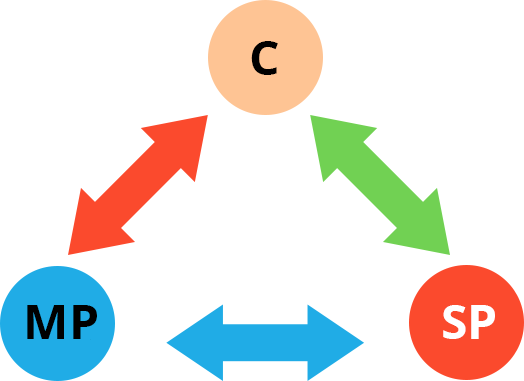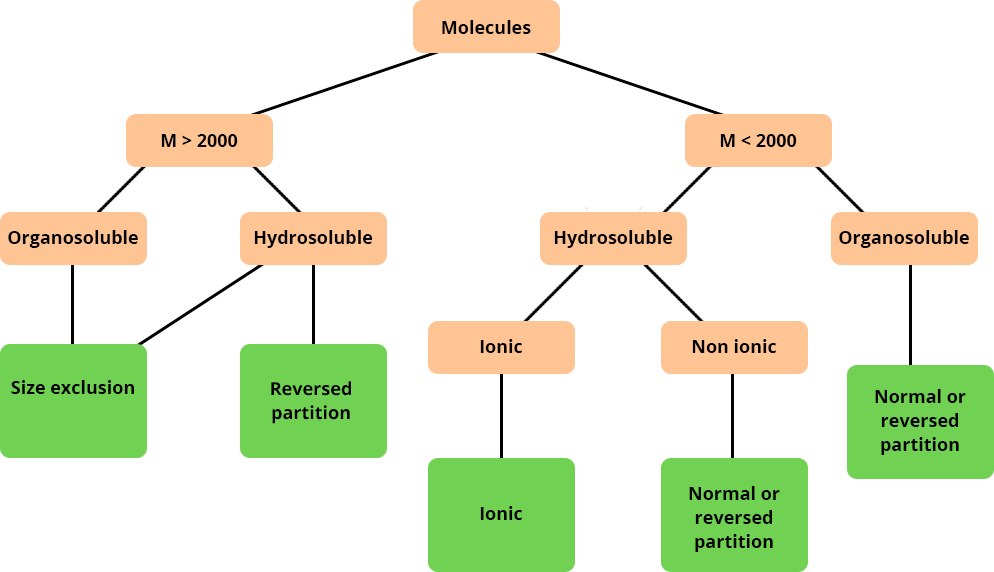HPLC: high-performance liquid chromatography
HPLC (or high-performance or high-pressure liquid chromatography) is an analytical separation technique, based on the progressive migration of compounds in a column that withstands high pressures.
The interactions used to retain and elute compounds play out between:
- The compound: C
- The mobile phase: MP
- The stationary phase: SP

Different separation modes exist in HPLC. The chosen mode depends on the characteristics of the molecules to be separated.
The different types of chromatography commonly used are:
- Partition chromatography (most commonly used)
- Ion-exchange chromatography
- Size-exclusion chromatography
- Adsorption chromatography (rarely used, intended for specific applications)
The simplified diagram below helps to identify the HPLC method best suited to the separation of the compounds according to their characteristics.





